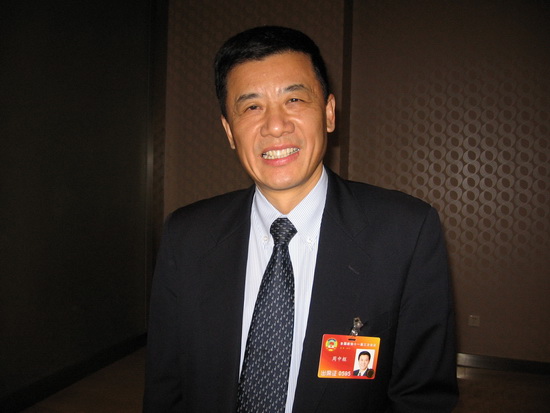Consolidation of rare earth industry urged
 |
| Zhou Zhongshu, a CPPCC member and president of China Minmetals |
The head of China's largest metals trader has called for government efforts to consolidate the rare earth industry and nurture competitive domestic firms in the sector.
Zhou Zhongshu, president of China Minmetals, said that the difficulties facing China's rare earth industry mainly come from the fact that local authorities, owners of rare earth mines, tend to issue mining licenses to local firms. Often small companies churn out low value-added products.
"This hinders the development of the sector," Zhou said.
As most mining licenses go to local firms, all sorts of enterprises, such as centrally administered state-owned enterprises (SOEs), local SOEs, private firms and foreign enterprises have equal chances of smelting the rare resources, he said.
"While the miners reap handsome profits amid rampant illegal mining activities, the smelters have only razor-thin profits as a result of the soaring cost of processing and fierce competition, and are left with no funds to conduct technological innovations," Zhou told Xinhua.
Zhou said the Ministry of Land and Resources (MLR) should be in charge of issuing the mining licenses, which should go to competitive enterprises willing to shoulder corporate social responsibility.
This would help streamline and promote the development of the rare earth industry since competitive and responsible enterprises would be engaged in mining and processing. Such businesses are expected to take environmental protection into consideration, he said.
The consolidation of the industry can be realized by bringing together large-scale trading companies for rare earth and local governments who own the resources to form large rare earth companies that would mine, smelt, select and process the resources themselves, said Zhou.
Zhou said earlier in January that China Minmetals, whose export and production of medium-heavy rare earth ranked at the top of the local industry last year, would acquire more rare earth mines to enhance the proportion of upstream resources.
Export quotas, subsidies on interest payments, fiscal subsidies and tax preferences should be utilized to encourage firms to make technological innovations, said Zhou.
Zhou's appeal came after a statement released at the end of an executive meeting last month by China's State Council, or the Cabinet. The statement said that the country would strive to consolidate its rare earth industry within five years.
Premier Wen Jiabao, who chaired the meeting, said China would promote new technologies in the industry and accelerate the pace of mergers and acquisitions between rare earth producers under a five-year plan.
The statement also said that would toughen measures to control the mining of rare earth and raise environmental standards. Further, the country would continue to cap production and exports with the quota system.
The MLR announced in January the establishment of eleven state-managed rare earth mining zones in Ganzhou of east China's Jiangxi Province to protect resources and the environment. The area is rich in ion-absorbed-type rare earth.
As the world's largest rare earth producer and exporter, China provides more than 90 percent of global rare earth demand, though its reserves account for only one-third of the world's total.
 0
0 






